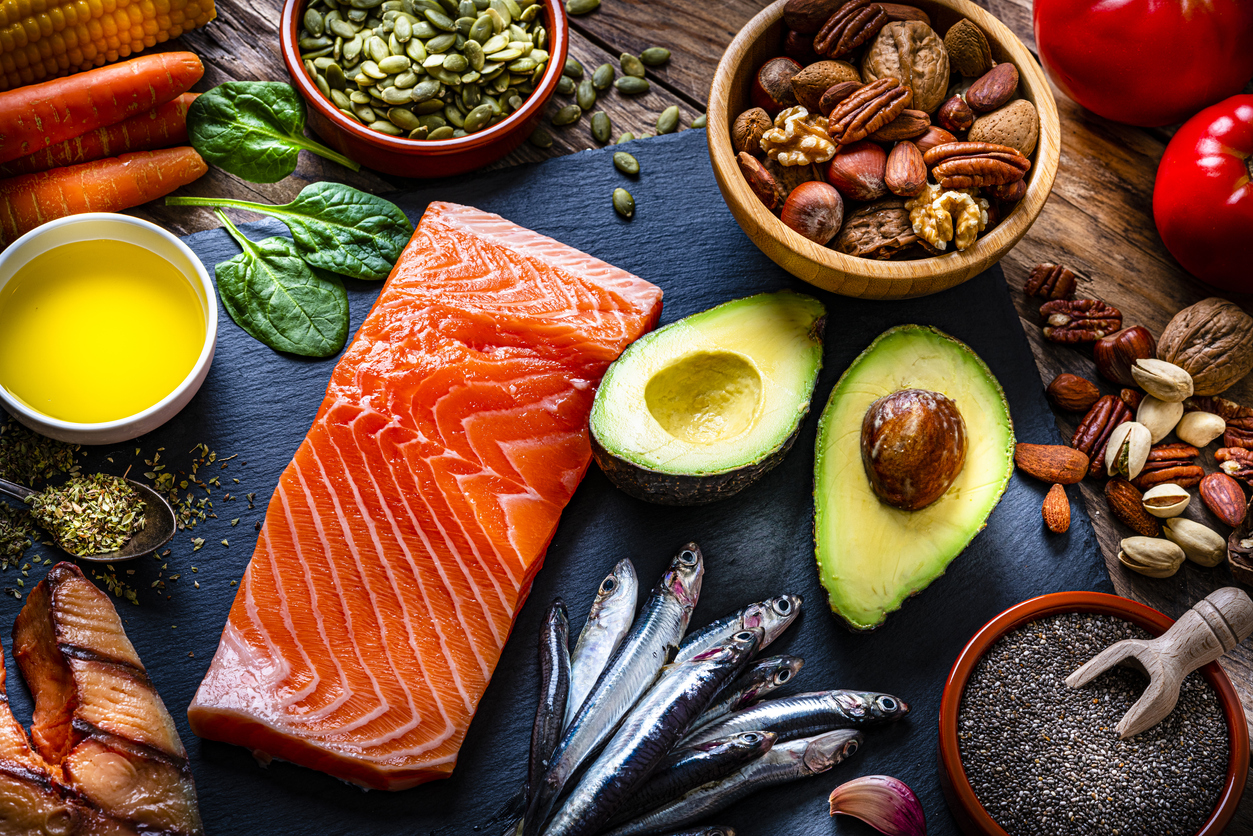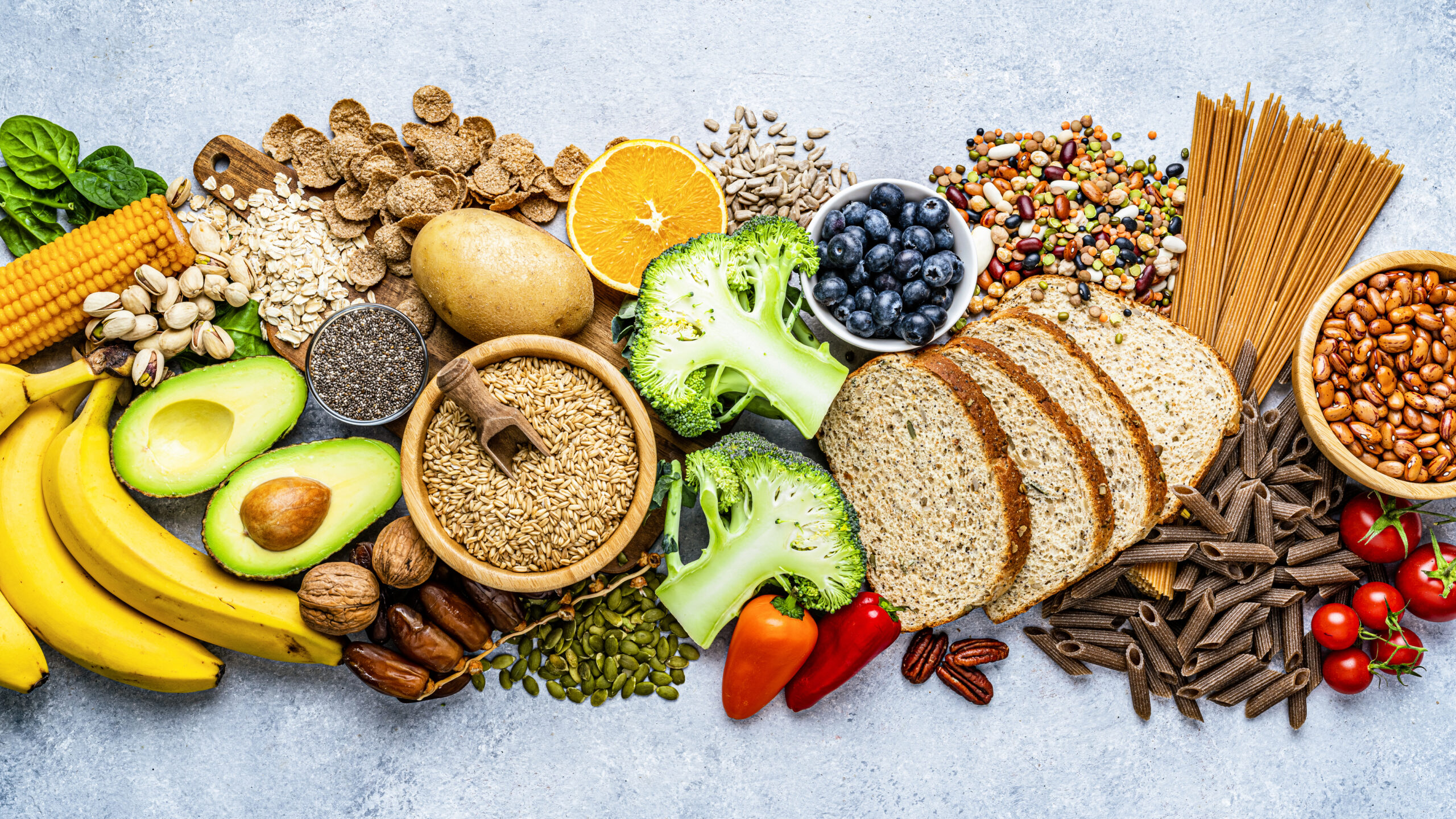Inflammation gets a lot of bad rep, and so many people universally think of it as a harmful process that can be detrimental to our health. The truth is, inflammation is a natural process that is necessary for us to stay alive – it’s our immune response to various pathogens (such as getting a fever when you have a viral infection), or when your body feels sore after a workout (your muscle tissue is inflamed). The actual problem arises when the inflammation is not acute (temporary), but chronic (long-lasting).
More often than not, chronic inflammation in the body is caused by a myriad of our lifestyle choices, the primary one being our nutrition. Unhealthy, overly processed foods with little nutritional value but plenty of calories tend to slowly push your body into a chronically inflamed state. Sometimes it presents itself as issues with your gut health, fatigue and ongoing exhaustion, or hormonal imbalance.

Low-quality carbs and insulin
Foods packed with sugar and trans-fats have a devastating impact on how your body metabolizes nutrients. In order to cope with such a sugar rush, your body will produce irregularly high levels of insulin, leading to more inflammation.
People who eat too many foods based on low-quality carbs (foods that are low on nutrients but typically high in calories like candy bars) also have a tendency to be overweight and put more pressure on their cardiovascular system.
The goal is to replace unhealthy, nutrient-empty carbs with fiber-dense, healthy carbs like fresh fruit and veggies. That way, you can diversify your menu regularly, and avoid hormonal imbalances.

Alcohol and processed foods and estrogen
Although one glass of wine every once in a while won’t cause any major issues with your health, especially when the rest of your lifestyle habits are healthy, alcohol as well as processed foods can affect your estrogen production. Processed, sugar-loaded foods as well as alcohol can elevate insulin (as we’ve mentioned before), which causes a hormonal spiral in your system. Unnecessary fat gain also leads to increased estrogen production.
When battling estrogen-related issues, dietary reinforcements like Meta I-3-C can help your body balance this crucial sex hormone. However, in addition to healthy supplementation, it’s vital to rethink your approach to nutrition and focus on consuming more veggies, wholegrains, lean protein sources, and healthy fats.

The vicious cycle of cortisol and emotional eating
Too much stress in your life might push you to reach for the stack of sweets you have hidden in your kitchen. If this happens once in a blue moon, chances are that your hormones might handle it well. However, if you continuously use food as your coping mechanism for stress, you’re likely experiencing that sugar rush followed by a quick energy slump, with your cortisol levels changing rapidly.
The more you’re stressed, the more you eat, and that in turn leads to more stress, since you’re aware that overeating and overindulging in sweets and processed foods is far from healthy. In addition to the ingredients themselves affecting your hormone levels, the mental turmoil of this stress cycle leads to producing more cortisol, too.
- Find healthier ways to cope with stress, preferably activities that will help lower your cortisol levels naturally and help you improve your resilience to stress triggers in the future. Meditation, dancing, swimming, reading, or having a restorative bath are all activities that can help.
- Get enough sleep every night, since the lack of sleep can spike your cortisol and you will feel more inclined to reach for sweet treats.

Pesticides, hormones, and antibiotics in food
Processed as well as non-organic foods are often treated with a wide array of chemicals and ingredients to prolong their shelf life and enhance their flavor. From antibiotics, hormones, to pesticides, these often toxic and harmful, synthetic ingredients can disrupt your hormone production if you consume them over the long term.
All of the listed chemicals can affect your gut health, and over time, cause imbalances in how your body produces hormones. The best way to reduce and eliminate the intake of these chemicals is to eat local, seasonal foods that are grown organically.
Balancing your hormones is far from a simple process, especially after years of poor dietary choices and little to no physical activity. Chronic inflammation caused by low-quality and harmful ingredients in your diet should be tackled with care and a strategy to boot. Call us and schedule an appointment with our functional medicine experts, to start a detoxing program suited just for you, to get your hormones back to normal, and boost your quality of life.






